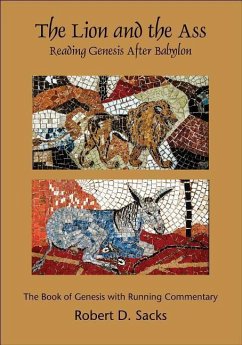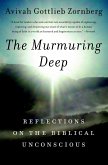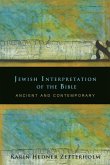With characteristic boldness, Robert Sacks offers a narrative path through themes, events, and actions in Genesis that repeatedly find their parallels and consequences in later books of the Torah and the Early Prophets. In light of the compelling unity these patterns convey, Sacks proposes to view Genesis not only as the first of the Five Books of Moses (the Torah), but as the opening work of a single composition consisting of Genesis through II Kings: the TANAR, whose name stems from a Hebrew acronym. Sacks's thorough knowledge of the biblical text in Hebrew is brought to bear in his broad-ranging examination of key words and phrases in light of the way the Hebrew words are used elsewhere in the biblical text. When a lot is riding on a word, Sacks searches for the closest English meaning with full nuances and resonances: a worthwhile search when these may be clues to the biblical author's understanding of larger issues. The Lion and the Ass are characters in I Kings Chapter 13. Sacks sees the Lion as typifying those towering biblical figures who ¿overturn in order to preserve¿¿figures like Abraham, Jacob, Moses, David, and Josiah. The Ass, also essential, typifies the many in-between individuals like Isaac, figures who resolutely carry on the burden of tradition. Sacks argues that if we are to understand God's promise in the context of Israel's fall at the hands of Babylon, we must reinterpret the biblical author's intent. The promise must include Israel's ability to withstand years of captivity under foreign domination in Babylon. Early versions of The Lion and the Ass first appeared serialized in the journal Interpretation, later under the title A Commentary on the Book of Genesis (Edwin Mellen Press, 1990). In the intervening years, sadly, pirated versions, at once sloppy and incomplete, have been circulating on the internet. Kafir Yaroq is greatly pleased to make this book, newly and extensively revised by Dr. Sacks, available in a form worthy of its author and its readers.








